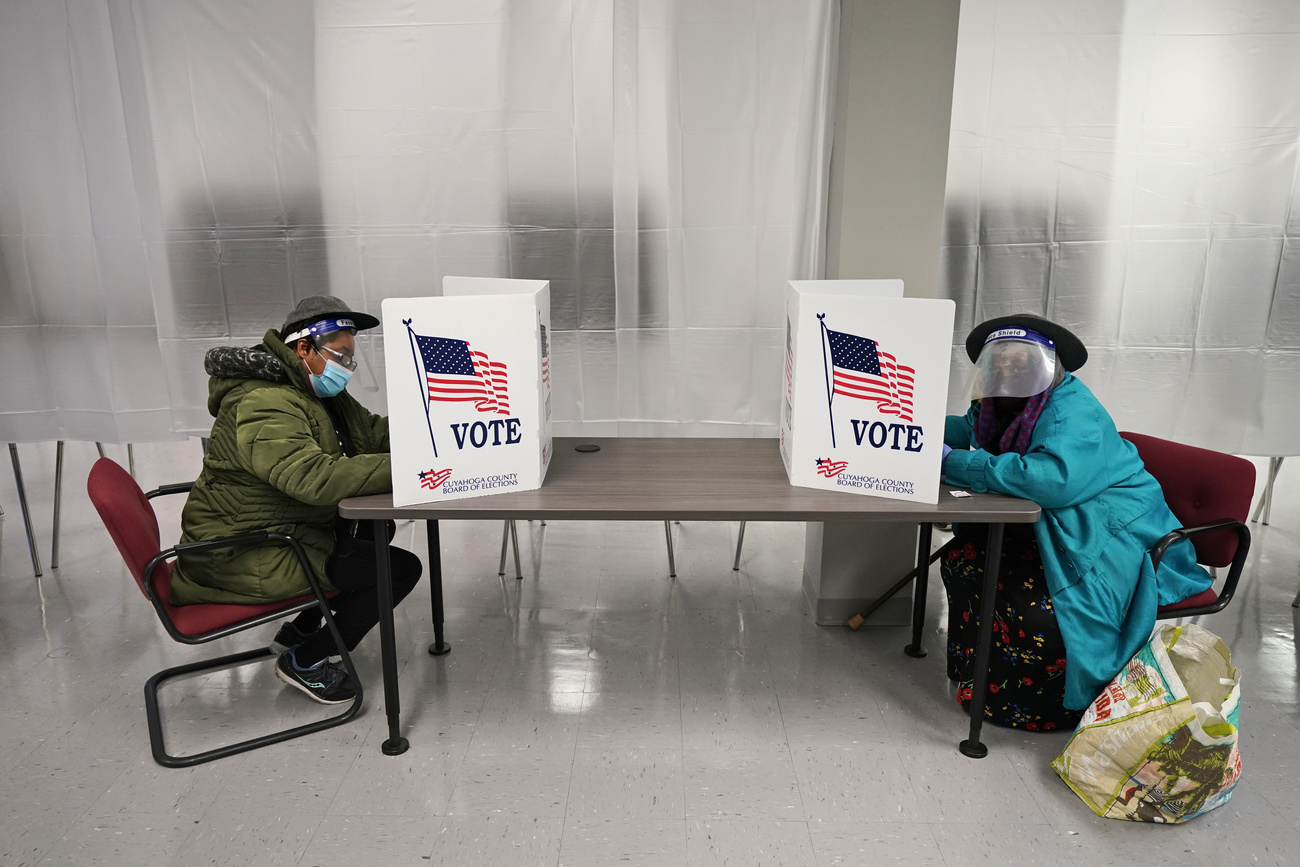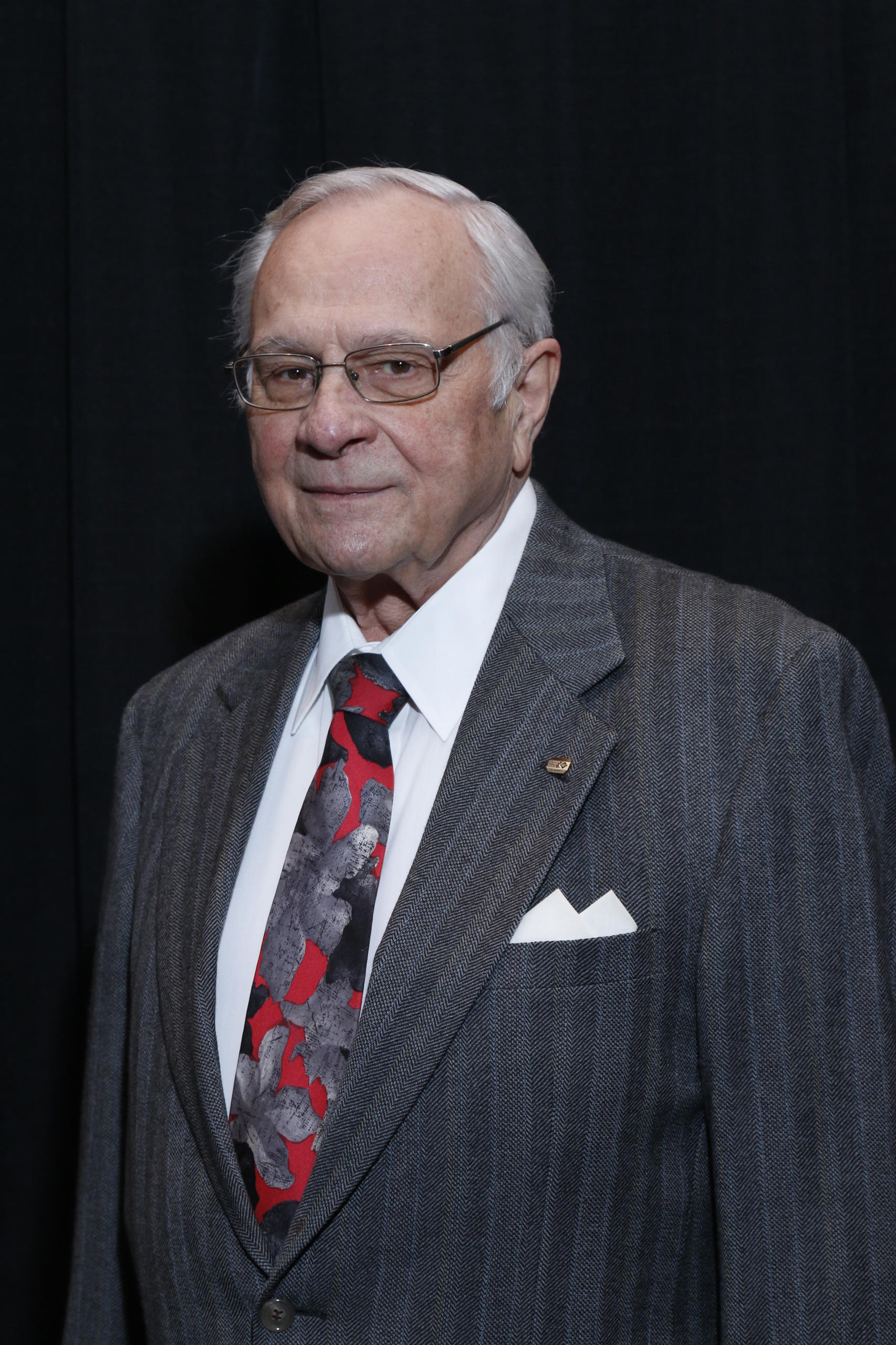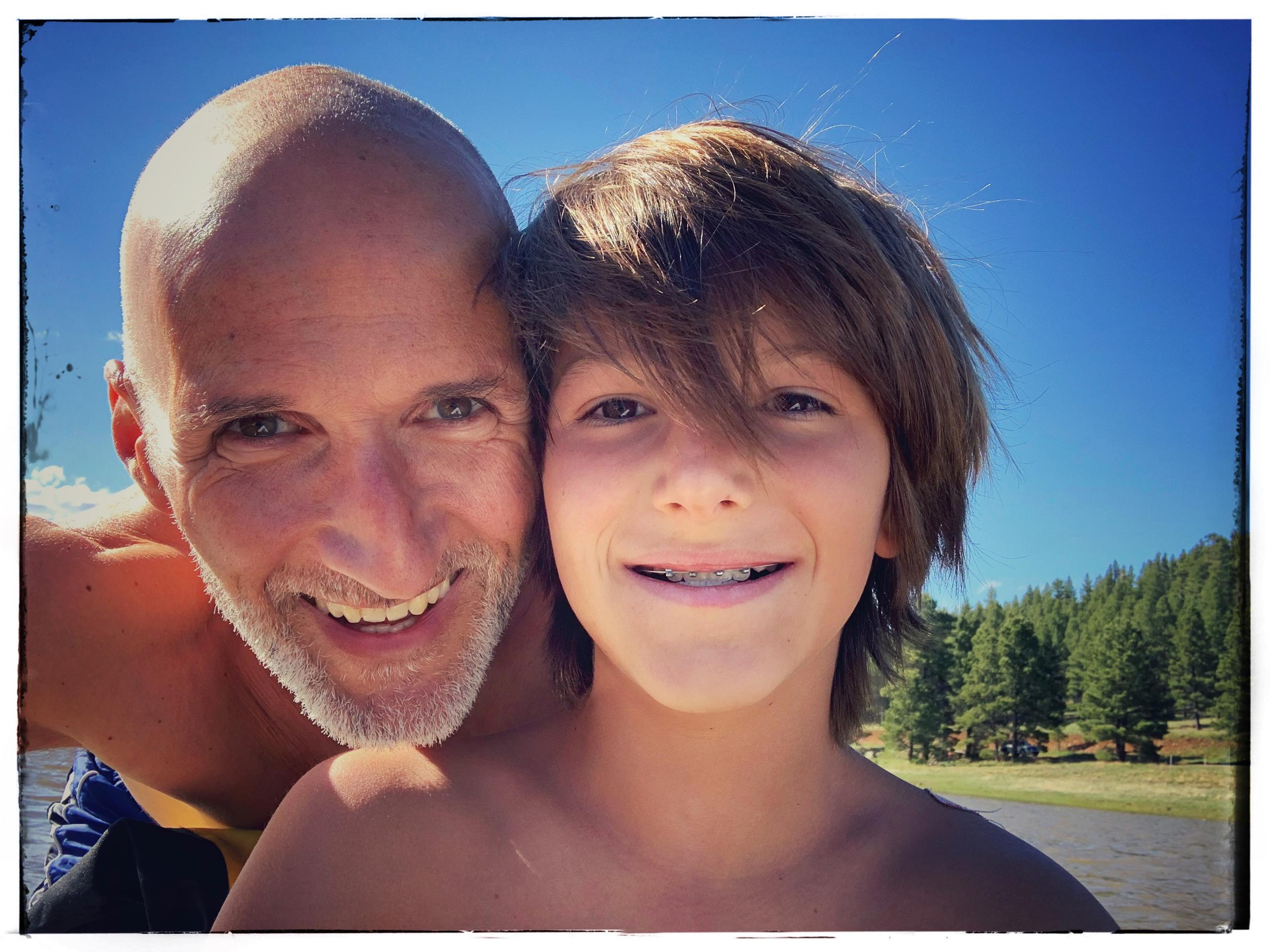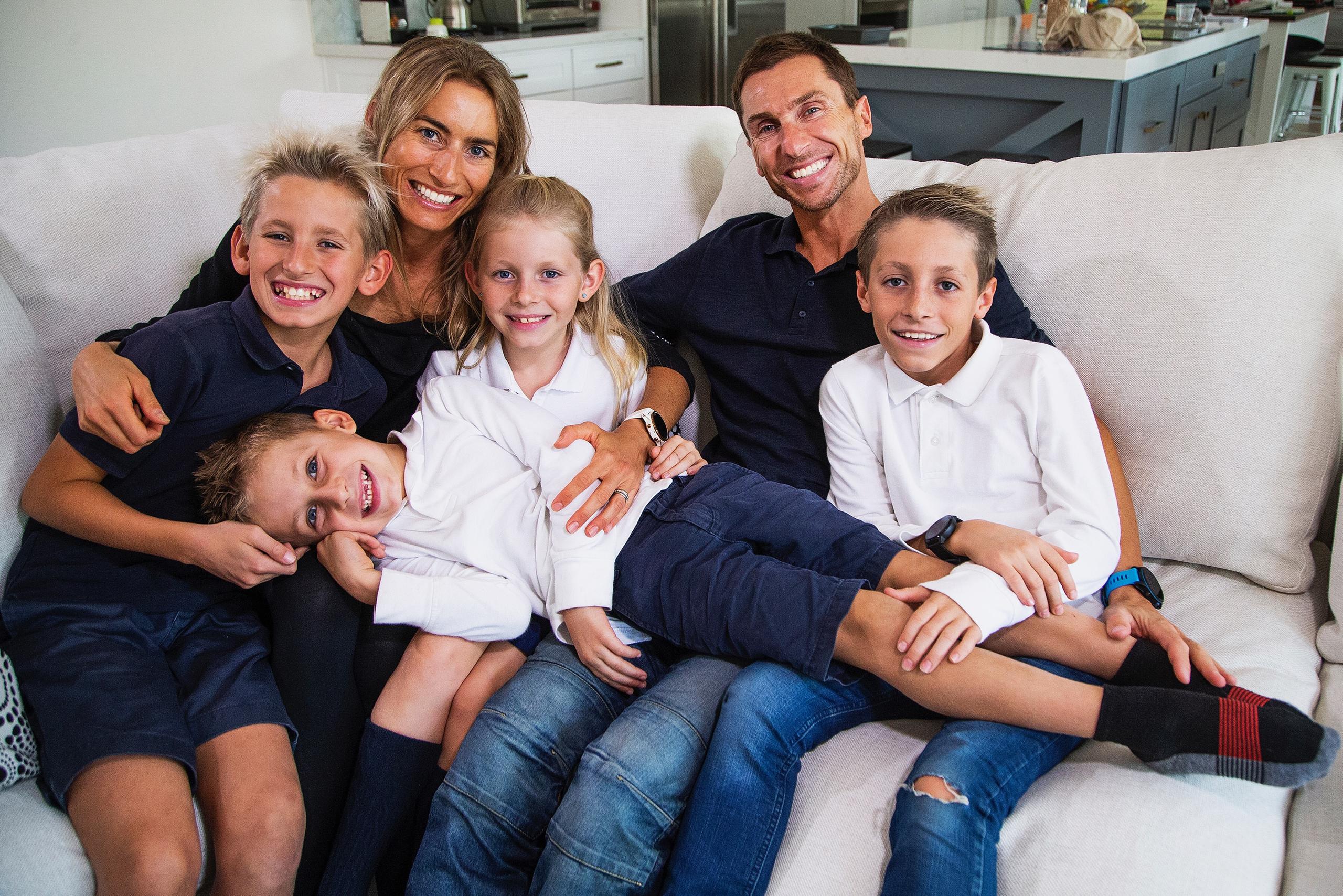
Swiss in Ohio: ‘We have two choices. I don’t like either of them.’

If André Odermatt’s four decades in the United States have shown him anything about US politics, it’s that it’s a fascinating and messy affair.
“American politics — as messy as it is — is fascinating. Democracy itself is fascinating,” he says from his home in southwestern Ohio’s Miami County, which went to President Donald Trump with nearly 70% of the vote in 2016. “What I do feel is a disadvantage are only two parties [in U.S. politics], and the two parties are extremer and extremer as time goes on.”
Odermatt is originally from the canton of Schwyz, but grew up in Zug, apprenticing as a mechanic and ultimately studying business, and working for a welding company in Zurich. He wanted experience abroad, so he took a job with an American company in Amsterdam looking to break into the European market. Eventually the work brought him and his wife, Edith, to Ohio in 1979, where he worked and taught courses in product development for a local university for many years.

‘The results are pretty good’
Odermatt got US citizenship in the late 1980s, allowing him to participate in that “messy” political process.
“I did vote for Trump [in 2016]; my wife did not,” he says. “I voted for Trump because I wanted to have a non-politician. Local politics in a county, in a village, in a city, they are closer to the people, but once they get towards the state and [federal] governments they become more and more hypocritical and crooked.”
Odermatt says he wanted to see how a non-politician might approach governance, on account of, in his view, many politicians in both major political parties being out to enrich themselves.
“[Trump] doesn’t speak the language of a politician. Do I like how he does things? No I don’t. But results count, and the results are pretty good,” he says.

More
‘There’s no search for dialogue at all’, says Swiss expat in US
Philosophy over personality
Odermatt considers himself a fairly conservative voter, one who places high value on faith and morality, free trade, and limited government. The polarising nature of Donald Trump is not his biggest concern.
“I never really look at the person, like the president. Of course the position has more power than in the Swiss democracy, but there is the opportunity to change every four years,” he says. “It’s not the person I’m interested in, I’m more interested in the philosophy of the party. In the case of the president that we have now, I really don’t like his demeanor, but I like the philosophy and ideas. If he could’ve run as an Independent he would have, I assume. But the system doesn’t allow that.”
Odermatt is not happy that a viable third political party hasn’t been able to break into mainstream US politics, with the Democrats and Republicans maintaining a firm hold on the system. Two parties aren’t enough, he says, though a Swiss system with a dozen or so parties is probably too many.

More
Life in a divided US ‘a roller coaster ride’ for Swiss expat
Tough choice
The lack of choice in the US has made this year’s election a difficult one for Odermatt.
“We have two choices: we can do Kamala Harris and Biden, or we can do Trump. I don’t like either of them,” he says. “I do want to vote. And I look at both situations and think of what is the lesser evil. Neither is attractive. Harris would be very much [on the political left] based on her history. With regards to personalities I don’t like any of them.”
In looking more for a candidate that aligns with his philosophy, Odermatt took a second look at the Libertarian candidate for president, Jo Jorgensen, after watching a news clip that seemed to hit close to home.
“The interviewer asked what she would do if she was president. She said ‘I would turn the US into a big Switzerland’, and I started to listen,” Odermatt says, admitting it would be hard to apply direct democracy and limited federal power in a country of 330 million people.
“But it would be an interesting discussion,” he adds.

More
Swiss in New York: ‘The US is very much based on the individual’
Hopes for a decisive victory
Ohio is a perennial swing state that has seemed to lean Republican in recent years, but it approaches the US election under pandemic conditions. Record numbers of voters have requested absentee ballots, meaning the election result may not be known for days.
In addition to his advanced age, Odermatt has pulmonary fibrosis, a lung condition, so is part of the group most vulnerable to the effects of Covid-19. His wife of 59 years had a stroke last year and has been in a care facility. Odermatt says being separated is hard enough, but not being able to visit her during the pandemic has made it much more difficult. They have no children, so they’re on their own.
“To be separated is terrible,” he says, adding that it’s difficult to know what will happen next, especially in this election. “My wish is that whatever party wins the election, may it be a decisive victory that leaves nothing to argue about!”

In compliance with the JTI standards
More: SWI swissinfo.ch certified by the Journalism Trust Initiative






























Join the conversation!